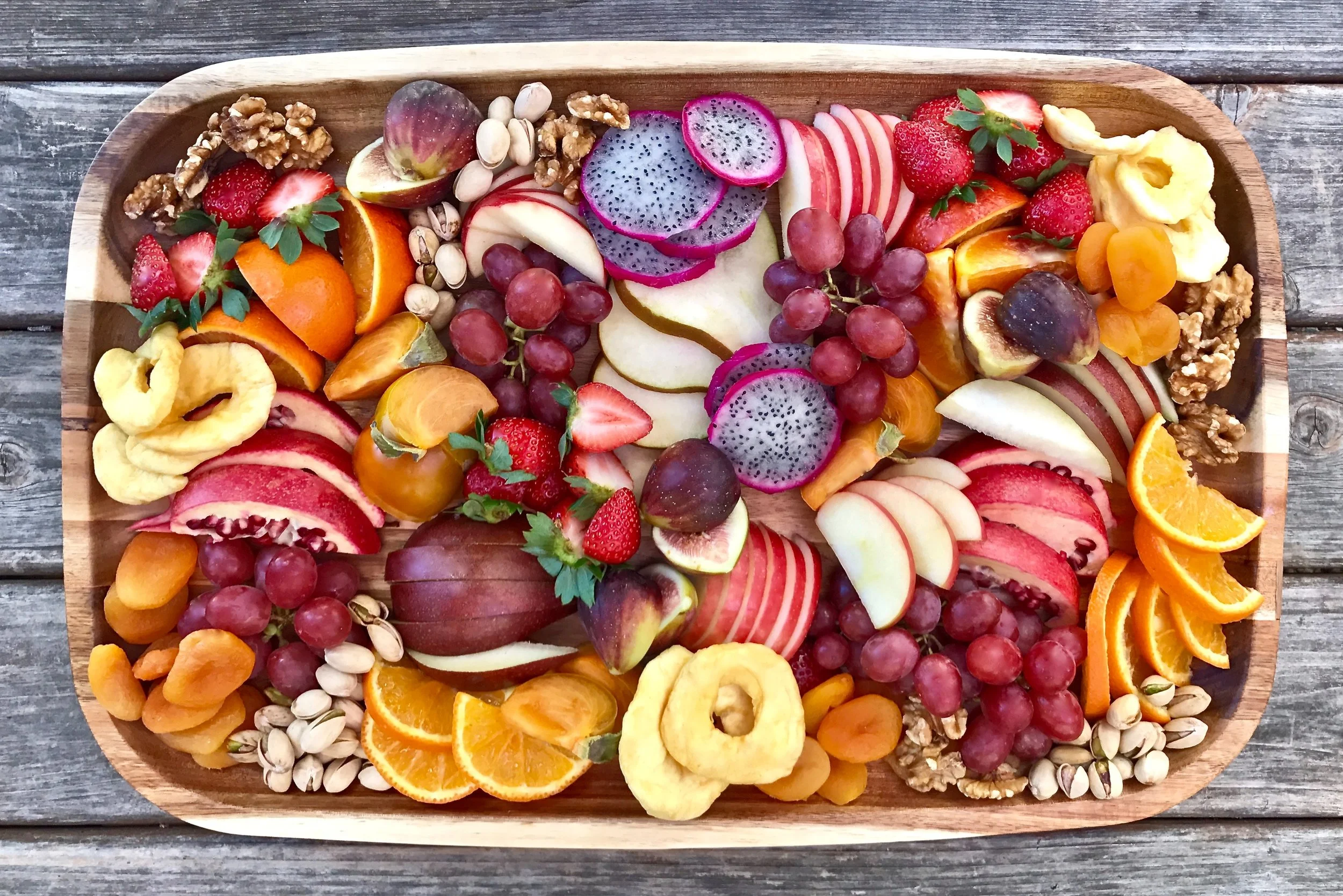Let's Cover our Nutritional Bases
How to Meet our Dietary Requirements
As a dietitian I am frequently asked how to lose weight and which foods are “fattening”. I am far less often asked how to eat in order to meet nutritional needs. This is such a sad reflection of our cultural pathology. We are conditioned to worry more about weight than health and erroneously equate weight-loss with health-gain.
A large part of my job is providing meal plans to my clients. I individualize these plans based on clients’ preferred foods and slowly incorporate food challenges. This is done in order for all food to become neutral and permissible without emotional impact. I base my meal plans on daily dietary requirements. This helps my clients heal both physically and psychologically.
So how exactly do you cover your nutritional needs?
Macronutrients
These are the “large” nutrients, or what we need an abundance of. They include carbohydrates, proteins, and fats. We need a balance of all of these throughout the day in order for our bodies to work most efficiently.
45-65% Carbohydrate
Despite popular fear, carbohydrates are not fattening and are a necessary part of our diet. The glucose from this macronutrient feeds our brains and powers our muscles. Fiber which is found in carbohydrates aids in blood sugar control, digestion, and fullness.
10-35% Protein
This macronutrient being far more popular and less feared in our current culture is important for building and repair of tissue as well as hormones and enzymes. The total requirements are usually lower than expected, especially for children.
20-35% Dietary fats (or “lipids”)
We continue to learn more about this macronutrient and have in recent years discovered its protective qualities against disease. Most people now feel more confident including healthy fats in greater abundance in their diets recognizing that they aid in satiety, energy, absorption, hormone production and cell wall structure.
Another sometimes missed macronutrient is water. About 60% of our bodies are water and to hydrate properly we need about 74 to 100 ounces of fluid daily or roughly half of our body weight in ounces. Any fluid losses such as through loose stools or sweat will increase this basic approximation. However, some people make the mistake of thinking they need to drink gallons of water daily, when in fact this could be fatal. Over-hydration dilutes our electrolytes and under-hydration can lead to headaches, low blood pressure and foggy thinking.
Micronutrients
We can fairly easily meet our macronutrient requirement of carbohydrate, protein and fat even without meeting our micronutrient, or vitamin and mineral requirements. This is how someone can actually overeat and remain malnourished. Imagine eating mostly highly processed snack or fast foods everyday. This can lead to micronutrient deficiencies. This is not to say that we cannot include fun processed snacks and fast food as part of a balanced, nutrient-rich diet while still maintaining our health.
Every micronutrient has a slew of different jobs. For example, Zinc helps your body’s immune system, plays a role in cell growth, wound healing, cell division, carbohydrate breakdown and our sense of taste and smell. Becoming deficient in micronutrients can lead to symptoms such as fatigue, numbness and tingling, muscle weakness or cramps.
What an adult should aim for each day:
6 servings of grains (aiming to make “half of them whole”) such as ½ cup uncooked oats, 2 slices of bread, 1 cup rice, 1/3 cup granola
Nutrients they cover: carbohydrates, Zinc, Iron, and Calcium (when fortified), Fiber, B-Vitamins including thiamin and riboflavin, folate, niacin, and magnesium
These help with: energy production, constipation, blood sugar control, disease prevention, satiety
2 servings of animal protein such as 6-8 ounces of chicken, fish or meat
Or
3 Servings of vegetarian protein options such as 1/3 block tofu, 2 eggs, ½ cup beans (each counting as “1 serving”)
Nutrients they cover: Protein, Zinc, Iron, Vitamin B12, Vitamin A, Vitamin K, copper and selenium
This helps with: building and repairing tissue, including muscle, skin, and blood, hormones, enzymes, energy production, and satiety
3 Dairy or Calcium-rich food sources such as 1 cup of milk, 1 cup of yogurt, 1.5 ounces of cheese,
Nutrients they cover: Protein, Carbohydrate, fat (unless nonfat is chosen) Calcium, Vitamin D, Vitamin B12, Phosphorous, Magnesium, Riboflavin, Zinc, Vitamin A, Potassium
These help with: bone health, muscle contraction, blood clotting, normal nervous system function, keeping a healthy blood pressure, possible enhancement of good bacteria in the gut from fermented versions which could lead to disease prevention
2-3 Fruits such as an apple, banana, and cup of berries
Nutrients they cover: Carbohydrate, Fiber, Vitamin C, Beta-Carotene, Phytochemicals, Potassium,
These help with: disease prevention, constipation, satiety, growth and repair of tissues, healthy blood pressure, skin, eyes and vision
3-5 servings of vegetable including legumes: such as ½ cup cooked broccoli, 1 cup leafy greens, ¼ c salsa, 1/2 cup beans
Nutrients they cover: Carbohydrate, Fiber, Vitamin C, Beta-carotene Vitamin K, Vitamin A, Potassium, Phytochemicals
These help with: disease prevention, constipation, satiety, growth and repair of tissues, healthy blood pressure, skin, eyes and vision
2-3 servings of “healthy fats” such as 1 Tablespoon of olive oil, ½ avocado, 2 Tablespoons of seeds, ¼ cup nuts
Nutrients they cover: essential fatty acids, fat-soluble vitamins A, D, E & K, B-6, pantothenic acid (seeds/nuts)
These help with: satiety, energy, cell membranes, flavor, disease prevention, cholesterol levels, brain health
Please keep in mind that these are minimums. Adult women are perfectly capable of burning about 2000 calories per day and often more when they are younger, tall and/or active. For men this increases to 2400 kcal or more each day. It is best to speak with a registered dietitian to get specific goals that are appropriate for you as relying on the lower range of these numbers could lead to inadequate energy intake
We are too often concerned about what a food will cost us in terms of calories. What we ought to be concerned about instead is how we can use food to meet our nutritional needs. And then, there is always room for that daily snack that is enjoyed not for its nutritional benefit but for its flavors and fun.
Bon Appetit!
*For more on how to cover your nutritional needs, click on “Food versus Supplement”


